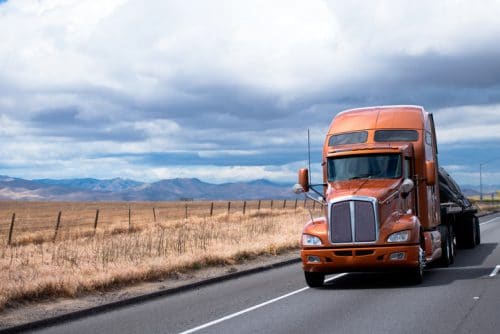Violations of federal and state trucking laws can be used to prove that a truck driver and/or his employer caused an accident.

In California and across the country, big rigs often rule the roads. While these vehicles are necessary to move goods across the country, they can cause devastating accidents that result in serious injuries or deaths to drivers of non-commercial vehicles.
Both California and the United States government have strict rules and regulations governing almost every aspect of the trucking industry. This includes laws about who can be certified to drive a large commercial vehicle, how long a person can drive, and even the type of materials that can be transported by particular trucks. If a truck driver or his employer has violated these rules and regulations, it can show that they were negligent — and that you are entitled to compensation for your injuries. While proof of a violation is not a guarantee, evidence that the truck driver or trucking company was not complying with the rules can go to show that the truck driver may be at fault for the accident.
So what rules govern truck drivers on California roadways? There are a myriad of federal, state and local laws that are meant to ensure that our roads remain safe, even with the presence of large, overweight vehicles. Read on to learn more about these rules — and how they can impact your case.
California Trucking Rules and Regulations
In California, both truck drivers and trucking companies are tightly regulated to increase safety. These rules range from who can be licensed to how much a truck can carry. If a truck driver or his employer breaks these rules, it could go to show negligence and help you recover for your losses in a truck accident.
All drivers of big rigs and other commercial vehicles are required to hold a commercial driver’s license, which is typically called a CDL. A driver must go through a rigorous testing process and significant training in order to get a California CDL, and after he or she obtains one, the driver is held to different standards than other drivers. For example, if a driver with a CDL is caught driving under the influence of alcohol or drugs (a DUI) or leaving the scene of an accident, then he or she could lose their CDL for at least a year. Drivers who are driving CDLs at the time of the offense are more likely to face serious consequences, but even drivers who are operating their personal vehicles can lose their CDLs if they commit a driving offense. If a driver accumulates a certain number of points on his or her license, he or she can be deemed a negligent operator under California law and lose their right to drive both personal and commercial vehicles.
When it comes to driving trucks, both state and federal laws restrict the amount of time that anyone with a CDL can spend behind the wheel. Truck drivers are now required to log their hours electronically to avoid anyone getting around the rule by falsifying documentation — which is important because drivers who are on the road too long can cause accidents due to sleep deprivation and/or being inattentive.
While these rules are a great start, they do not guarantee that truck drivers will make safe choices on the road. A violation of these rules — such as a truck driver operating a commercial vehicle after a DUI conviction — could show that the company or the driver were negligent, and that their negligence led to your injuries.
If you have been hurt in a truck accident, contact the Law Offices of Larry H. Parker today at 800-333-0000 or info@larryhparker.com. We are highly skilled at handling all aspects of truck litigation, and we will work hard to protect your right to compensation.



